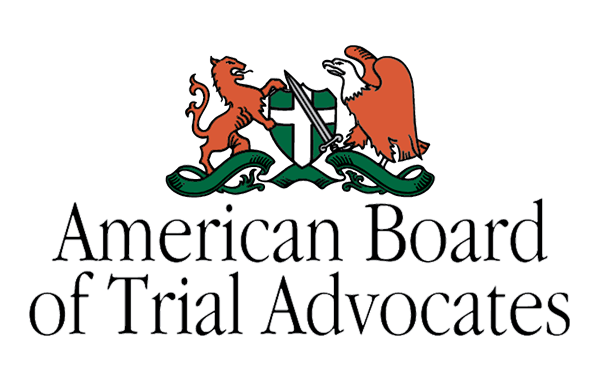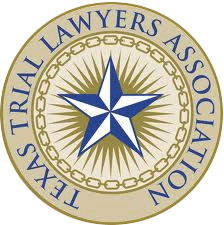In the ever-evolving world of transportation, rideshare services have become a convenient and popular option for people across Texas. Whether it’s for a night out, a quick trip to the airport, or daily commuting, rideshare companies like Uber and Lyft have integrated into our daily lives. However, with this convenience comes a new set of challenges, particularly when accidents occur involving rideshare vehicles. Proving liability in these cases can be a daunting task, often involving a complex interplay of legal and factual issues.








Understanding Rideshare Companies and Their Legal Framework
To grasp the complexities of rideshare accident cases, it’s essential to understand how rideshare companies operate and their legal standing. Unlike traditional taxi services, rideshare companies classify their drivers as independent contractors rather than employees. This classification is crucial because it influences the level of responsibility the company holds in case of an accident.
Rideshare companies typically provide insurance coverage that activates when a driver is on the clock. This coverage is often layered, depending on the driver’s status at the time of the accident. If the driver is waiting for a ride request, a lower level of insurance applies. When the driver is en route to pick up a passenger or is transporting a passenger, higher coverage levels kick in. However, the complexity arises when trying to determine the exact moment the coverage applies and how it interacts with the driver’s personal insurance.
This classification and the layered insurance policies create a legal gray area that makes proving liability more complicated. The issue of whether the rideshare company can be held liable or if the responsibility falls solely on the driver depends on various factors, including the timing of the accident and the specific terms of the insurance policies involved.
The Role of Negligence in Rideshare Accident Cases
Negligence is a fundamental concept in any personal injury case, and rideshare accidents are no exception. To hold someone liable for an accident, it must be proven that their negligence led to the incident. In the context of rideshare accidents, negligence can take many forms, such as distracted driving, speeding, or failing to obey traffic laws.
However, proving negligence in rideshare cases can be more challenging than in typical car accidents. One of the reasons for this is the involvement of multiple parties, including the rideshare driver, the company, and possibly other drivers or pedestrians. Each party may have a different version of events, and establishing a clear chain of causation is often complicated.
Moreover, rideshare drivers rely heavily on smartphone apps to navigate and communicate with passengers. This reliance can lead to distractions, which can be a contributing factor in accidents. Demonstrating that the driver’s use of the rideshare app at the time of the accident constituted negligence requires a thorough investigation, often involving access to the driver’s app data, phone records, and other evidence. This evidence is not always easy to obtain, and rideshare companies may not be forthcoming with information that could incriminate their drivers.

Protecting Your Rights
Insurance Complications in Rideshare Accident Claims
Insurance plays a significant role in any car accident case, but the situation becomes even more complex in rideshare accidents. As previously mentioned, rideshare companies provide insurance coverage for their drivers, but this coverage is contingent on the driver’s status at the time of the accident. The challenge lies in determining whether the rideshare company’s insurance or the driver’s personal insurance is responsible for covering the damages.
Texas law requires all drivers, including rideshare drivers, to carry minimum liability insurance. However, when a rideshare driver is logged into the app and waiting for a ride request, the coverage provided by the rideshare company is typically lower than when the driver is actively transporting a passenger. This lower coverage may not be sufficient to cover all the damages in a serious accident.
In some cases, the rideshare company may deny liability altogether, claiming that the driver was not on duty at the time of the accident. Proving the driver’s status at the time of the incident is crucial, but it can be challenging, particularly if there is a dispute about when the driver logged into or out of the app. Additionally, if the driver’s personal insurance policy has a rideshare exclusion, the injured party may find themselves in a difficult position, struggling to secure adequate compensation for their injuries.
The Complexity of Determining Fault in Multi-Vehicle Accidents
Rideshare accidents often involve multiple vehicles, adding another layer of complexity to the case. When several drivers are involved, determining fault can be a contentious process, with each driver potentially pointing the finger at someone else. In such cases, proving liability requires a meticulous investigation to piece together what happened.
Eyewitness testimony, police reports, and accident reconstruction specialists may all play a role in establishing fault. However, the presence of a rideshare vehicle adds another element to consider, as the driver’s status with the rideshare company and their potential distractions from using the app can complicate the determination of fault.
In some instances, the rideshare driver may not be entirely at fault, but rather share responsibility with another driver. Texas follows a modified comparative fault rule, which means that an injured party can still recover damages if they are found to be less than 51% at fault for the accident. However, their recovery will be reduced by their percentage of fault. In cases where multiple parties are responsible, navigating the legal landscape to ensure fair compensation becomes a significant challenge.
The Impact of Rideshare Company Policies on Accident Cases
Rideshare companies have their own policies and procedures that can impact accident cases. For instance, they may have protocols for how drivers should handle accidents, report incidents, and cooperate with investigations. These policies can either help or hinder the process of proving liability, depending on how they are implemented and enforced.
Moreover, rideshare companies are often large corporations with considerable resources at their disposal. They may employ teams of lawyers and insurance adjusters whose job is to minimize the company’s liability in accident cases. This can make it difficult for accident victims to pursue a claim, as they may be up against a well-funded legal team intent on protecting the company’s interests.
To successfully prove liability in a rideshare accident case, it often requires not only a deep understanding of the law but also the ability to navigate the intricacies of the rideshare company’s policies and procedures. This is where having an experienced legal advocate on your side becomes invaluable.
Legal Precedents and Their Influence on Rideshare Accident Cases
The relatively recent emergence of rideshare services means that the legal landscape surrounding these cases is still developing. Courts in Texas and across the country are continuously interpreting and applying the law to rideshare accidents, and legal precedents are still being established.
Legal precedents can have a significant impact on rideshare accident cases, as they provide guidance on how courts may interpret certain aspects of the law. For instance, past cases may influence how liability is determined when a rideshare driver is involved in an accident while logged into the app but not actively transporting a passenger. Precedents may also affect the interpretation of insurance coverage and the responsibilities of rideshare companies.
Staying abreast of the latest legal developments and understanding how they may apply to a specific case is crucial for anyone involved in a rideshare accident claim. This requires a thorough knowledge of both state and federal laws, as well as the ability to analyze and apply legal precedents to the facts of the case.
The Importance of Thorough Evidence Collection and Preservation
In any legal case, evidence is the cornerstone of proving liability, and rideshare accident cases are no different. However, the nature of these cases means that evidence collection and preservation can be particularly challenging. Given the involvement of multiple parties and the reliance on technology, securing the necessary evidence often requires swift and decisive action.
For instance, obtaining app data from the rideshare company can be critical in establishing the driver’s status at the time of the accident. This data may include GPS records, timestamps, and communication logs, all of which can help paint a clear picture of what occurred. However, accessing this data is not always straightforward, and rideshare companies may be reluctant to release it without a legal battle.
In addition to app data, other forms of evidence, such as dashcam footage, eyewitness testimony, and medical records, are also vital in proving liability. Ensuring that this evidence is collected and preserved promptly is essential, as delays can lead to the loss of critical information that could make or break the case.
The challenges of proving liability in Texas rideshare accident cases are numerous and complex. From the legal gray areas surrounding the classification of drivers to the intricacies of insurance coverage and the role of negligence, these cases require a deep understanding of the law and a strategic approach to evidence collection and preservation. Furthermore, the influence of legal precedents and the policies of rideshare companies add additional layers of complexity that can make pursuing a claim a daunting task.
For those involved in a rideshare accident, it is crucial to seek the guidance of a skilled legal advocate who can navigate these challenges and fight for the compensation they deserve. At Chavez Law Firm, our team is dedicated to helping accident victims understand their rights and pursue justice in the face of adversity. With our experience and commitment to our clients, we strive to make the legal process as smooth and effective as possible.
If you or a loved one has been involved in a rideshare accident, don’t hesitate to reach out to Chavez Law Firm. Our team is here to provide the legal support you need to navigate the complexities of your case and secure the compensation you deserve. Contact us today to discuss your situation and learn how we can help you move forward.



